Fossil fuels remain arguably the most dependable energy source in the contemporary world. There have been attempts to halt their use, but as it stands, the fossil fuel industry remains the foundation of the energy sector.
The campaigns discouraging us from using them are their carbon emissions and non-renewable nature.
But what are some of the pros of fossil fuels? We’ll look at them in detail below. Let’s get started!
What are Fossil Fuels?
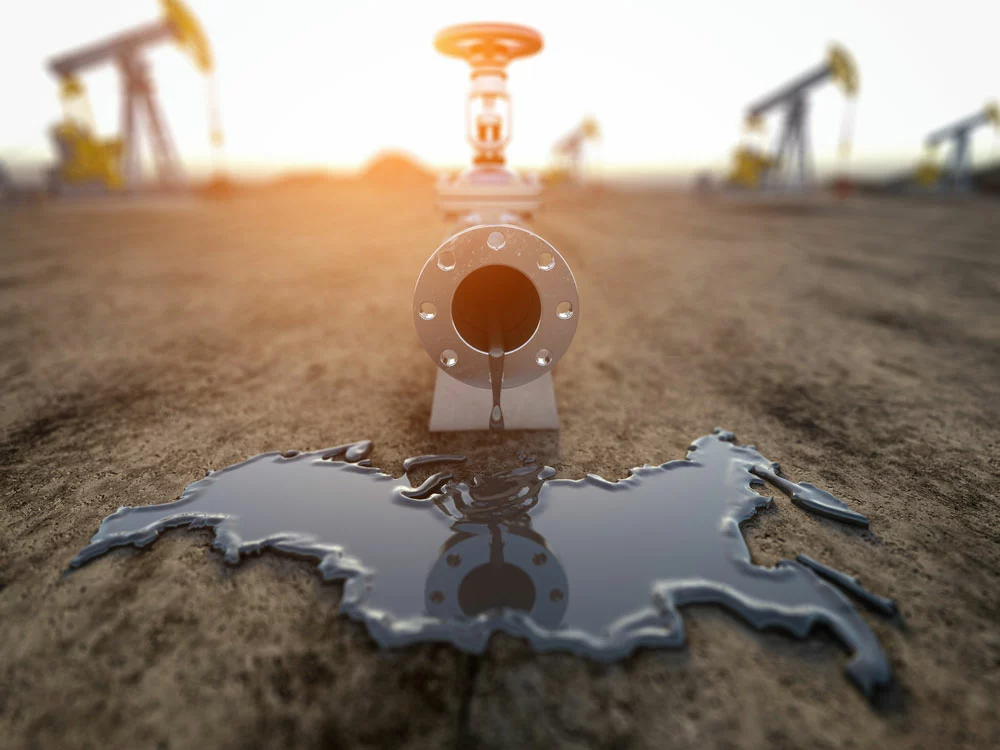
A Petroleum pipeline
They are flammable geologic deposits made of dead plants and animal matter which decompose via anaerobic decomposition.
The organic matter rots extensively under the heat and pressure of sand and mud above them to give natural gas, coal, and petroleum.
What ultimately forms (whether coal, natural gas, or petroleum) depends on the nature of the heat and pressure above.
Notably, fossil fuels are non-renewable primarily because their natural formation takes millions of years.
Hence, one of their biggest disadvantages is that they are not easy to replenish once depleted.
Fossil fuel usage is still high despite the growing popularity of alternative energy sources such as:
- Wind energy
- Biomass energy
- Geothermal energy
- Nuclear energy
- Solar energy
The above are renewable energies that are easier to reproduce than fossil fuel production.
Types, Formation, and Uses of Fossil Fuels
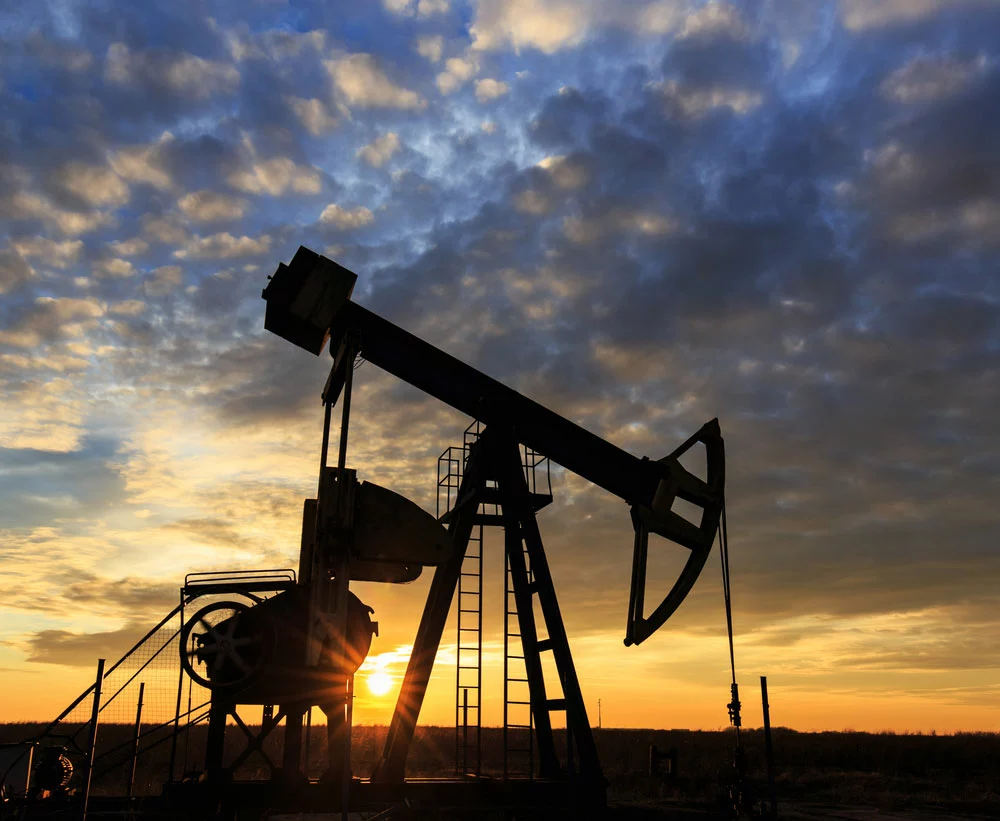
An Oil Gas Well Pump
The main types of fossil fuels are as follows:
- Petroleum
- Natural Gas
- Coal
Petroleum

Petroleum/ Crude Oil
It is a foul-smelling, oily, green, or black liquid comprising diesel, lubricating oil, petrol, paraffin wax, and petroleum gas.
Formation
Petroleum forms when plants and animals die and their bodies decompose under the sea. The particulate matter is also covered by clay and sand, which raises the temperature, thus converting the deposits to petroleum.
Use
Petroleum is valuable in motor vehicle internal combustion engines. Besides, it is essential in manufacturing polyethylene, plastics, detergent, and water repellents.
Natural gas
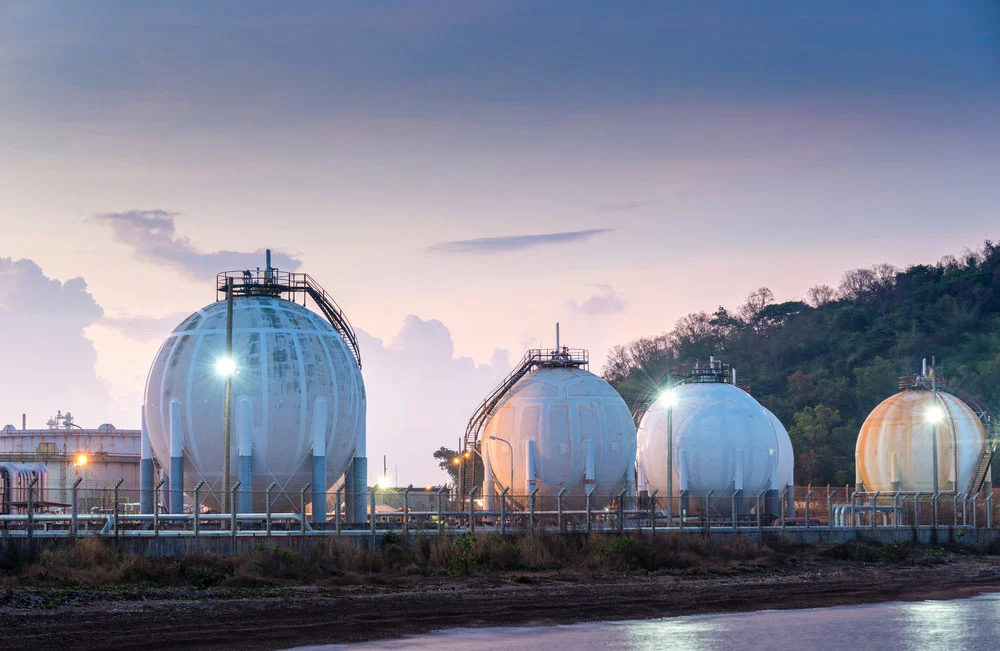
A natural gas refinery
It is a non-toxic fossil fuel that is colorless and odorless. Also, it is easy to store as compressed natural gas (CNG), and we transport it via pipelines.
Formation
The largest sources of natural gas are phytoplankton and zooplankton under the sea bed. These mix with organic matter and mud to form organic shale, which is defunct of oxygen. Next, the organic shale is compressed by the underlying weight, pressure, and temperature in the absence of oxygen to form kerogen.
Lastly, when overlying forces subject kerogen to high temperatures, they convert it into natural gas.
Use
The most important natural gas is methane which is useful in cooking, generating power, or automobile fuel.
Coal
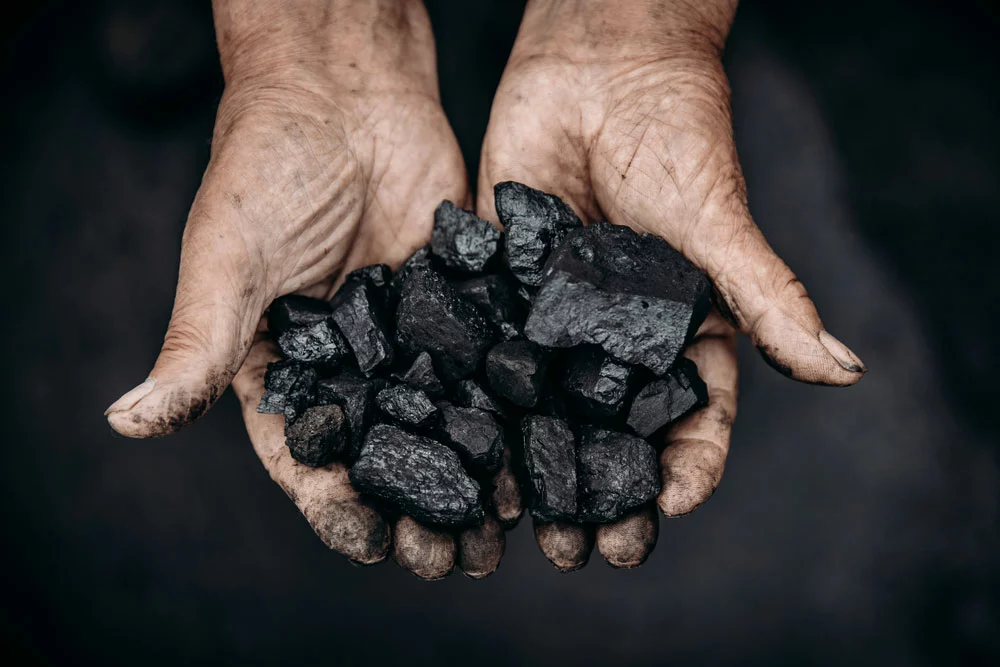
Coal
It is a hard black substance comprising several minerals that include the following:
- Carbon
- Nitrogen
- Sulfur
- Oxygen
- Hydrogen
Notably, there are three main coal types: bituminous, anthracite, and lignite. Furthermore, processing cola yields coal gas, coke, and coal tar.
Formation
Coal forms when forests and vegetation in low-lying wetlands are buried in the earth and decompose for millions of years under high temperatures and pressure. This process is called calcification.
Uses
Coal was useful during the industrial revolutions to generate steam in conventional rail engines. It is also valuable for cooking, electricity generation in coal plants, and industrial processes as fuel.
Pros of Fossil Fuels
1. Pros of Fossil Fuels: Easy to setup
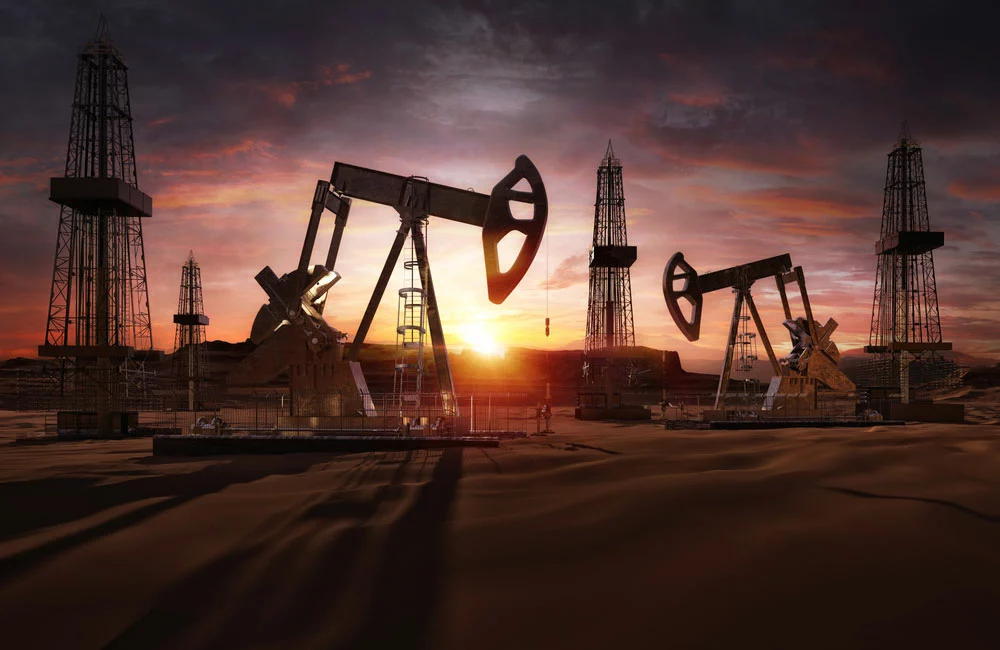
An oil field
Fossil fuel companies can easily set up a plant thanks to technological advancements. Also, extensive advanced fossil energy research, thus making it easy to create a plant almost anywhere in the world.
Also, we can process fossil energy at breakneck speeds thanks to technological advancements.
2. They create jobs

The Fossil Fuels Industry Creates Numerous Jobs.
The fossil energy industry has been the core energy source for almost all industries. Thus, it has, directly and indirectly, created millions of jobs. In the US alone, the industry has over 6.5 million people, as per the department of energy, who benefit from it.
Lastly, the fossil fuel industry has other massive benefits. We can see evidence of this from the prosperity of oil-generating countries that reap billions of dollars from the industry.
3. They are Reliable
Fossil fuels are not renewable energies such as alternative sources like wind power and solar panel systems. However, they have reliably provided immense energy since the industrial revolution.
Besides, sources such as solar cells are not entirely dependable as they rely upon the weather. So, the energy sector must depend on fossil energy.
4. They provide essential byproducts.

Fossil Fuel waste (plastics) is used.ul
Plastics are not part of renewable energy plans but are cheap and readily available. Plastics are essential in almost every field, including the medical industry and computerware manufacturing.
5. They are abundant

An Oil Well Drilling
Some sources of energy seem more available than fossil fuels. However, despite the need to shift to renewable energy projects, we cannot eliminate the reliance on fossil fuels.
We can only satisfy most energy demands by using fossil energy.
6. Pros of Fossil Fuels: High Calorific Value
The calorific value represents the amount of energy we can create by the combustion of a particular fuel. Note the energy efficiency of a fuel is proportional to its calorific value.
Fossil fuel sources have a high calorific value enabling them to handle the world’s high energy consumption and demands.
7. They are fully stable

Petroleum is easy to transport
Fossil fuels have quite a high hydrogen and carbon concentration. Thus, they are stable and easy to store. Also, they cannot decompose to other products during storage.
Besides, they are also easy to transport safely. We cannot say this of nuclear energy, which is highly dangerous to set up and transmit.
8. Pros of Fossil Fuels: Cheapest sources of energy
Fossil fuel companies will spend immensely in setting up dredging and refining plants. However, the overall return on investment is relatively high, making fossil fuels among the cheapest energy sources.
Cons of Fossil Fuels
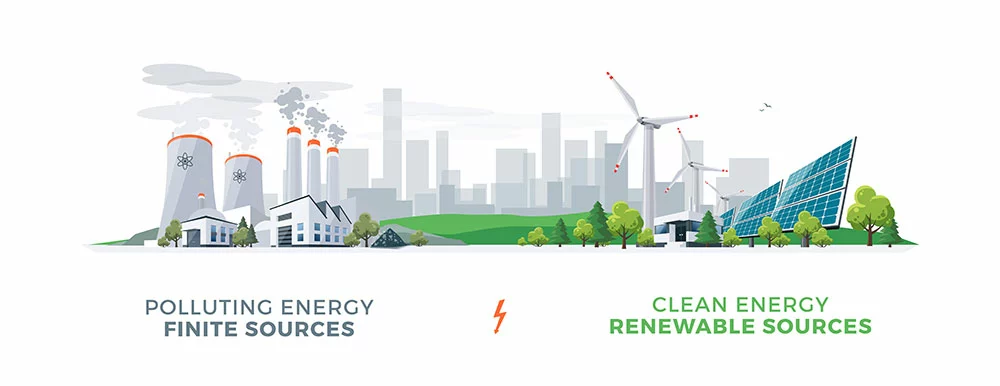
Fossil energy industries pollute the environment
1. Environmental Degradation
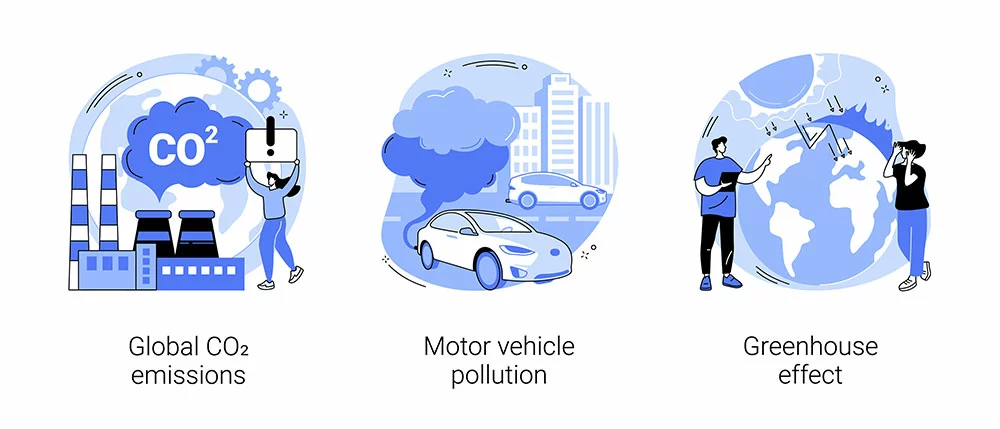
Fossil Energy contributes to emissions
Burning fossil fuels is the primary source of carbon dioxide and other greenhouse gas emissions contributing to the earth’s carbon footprint.
Hence, we need more renewable energy sources with fewer greenhouse emissions than fossil energy.
Oil spills in the ocean occur daily during crude oil transport and raise the concentration of carbon in water bodies. It significantly affects aquatic life.
2. They require high volumes of reserves
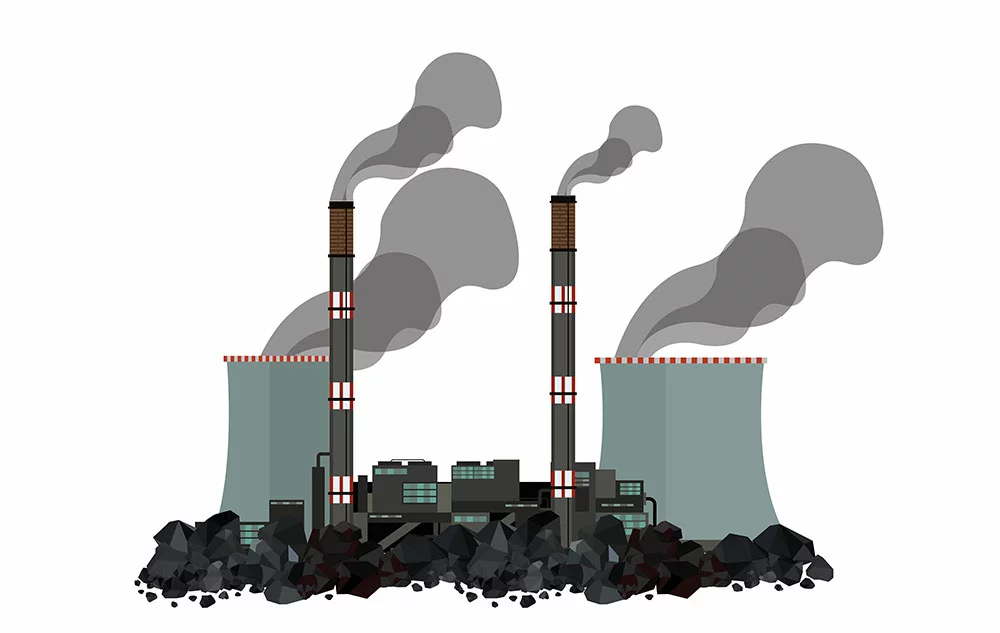
You need a large coal reserve in a fossil energy plant
Fossil energy power stations are coal-driven. Thus, they have to be situated where there are immense coal deposits.
They also require larger fuel reserves to run and, therefore, may be expensive in the long run to generate.
3. They affect human health
Burning fossil energy sources contributes to air pollution leading to respiratory conditions.
Also, they produce greenhouse gases that cause global warming, affecting human health.
Coal and crude oil mining is also dangerous and often results in the deaths of many miners via accidents. Besides, miners are also exposed to hazardous emissions during mining.
4. They are not renewable sources
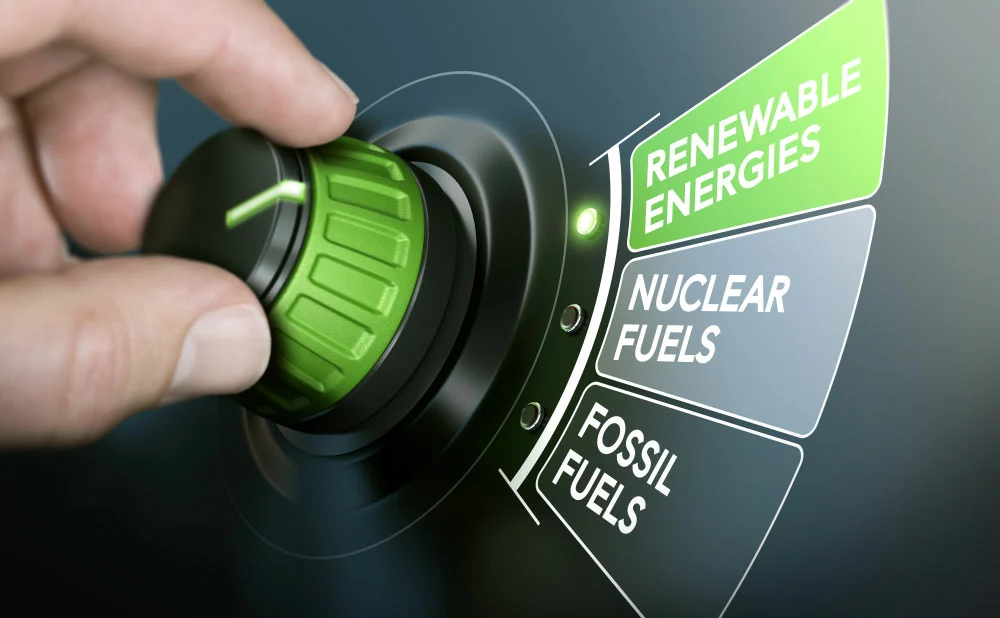
Fossil Fuels are non-renewable energy sources.
Fossil energies are not a renewable energy source and are likely to be depleted at some point. On the contrary, we cannot exhaust renewable sources such as solar energy.
5. Rising Prices
Oil and coal prices are highly susceptible to fluctuations. Also, since the middle-east countries contribute to almost half of the world’s fuel supply, they can manipulate prices.
Lastly, war, politics, and strikes can significantly affect fuel prices.
Transitioning to Renewable Energy Sources
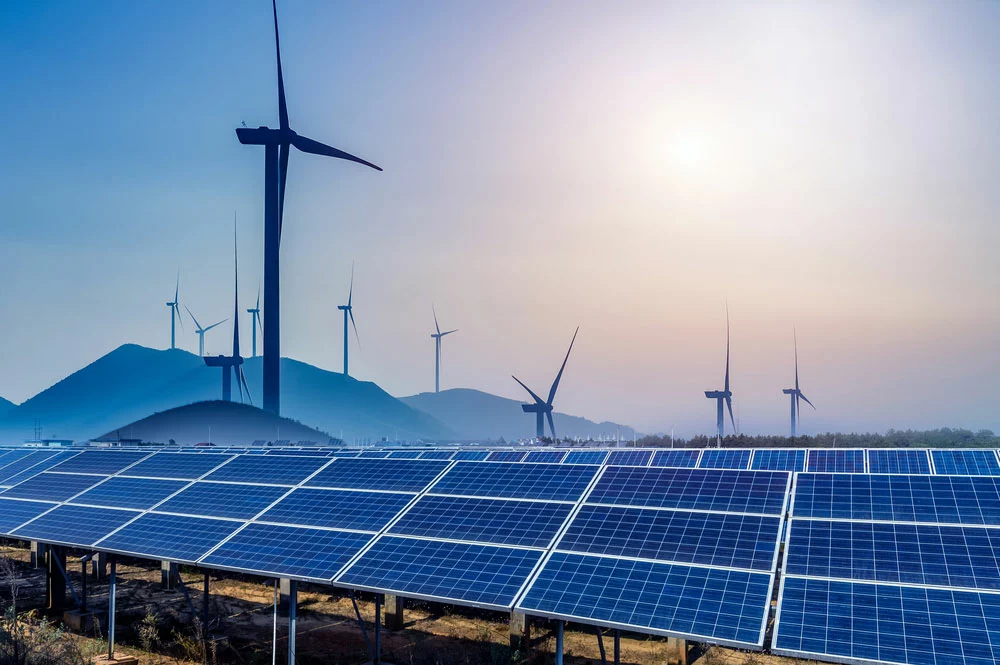
Clean wind and solar power
The world is moving to renewable energy sources, given the downsides of fossil energy that we’ve covered above. Alternative sources, such as using solar panels to tap solar energy, are growing in popularity.
Thus, the future of renewable energy is bright.
Summary
Above, we have covered the key pros and cons of using fossil fuels for energy supply. There’s no doubt that fossil energy remains the most dependable energy source today.
However, in the future, the world has to transform to other sources such as solar, wind, and geothermal that are renewable and safe. That’s all for now, and thanks for your time.
